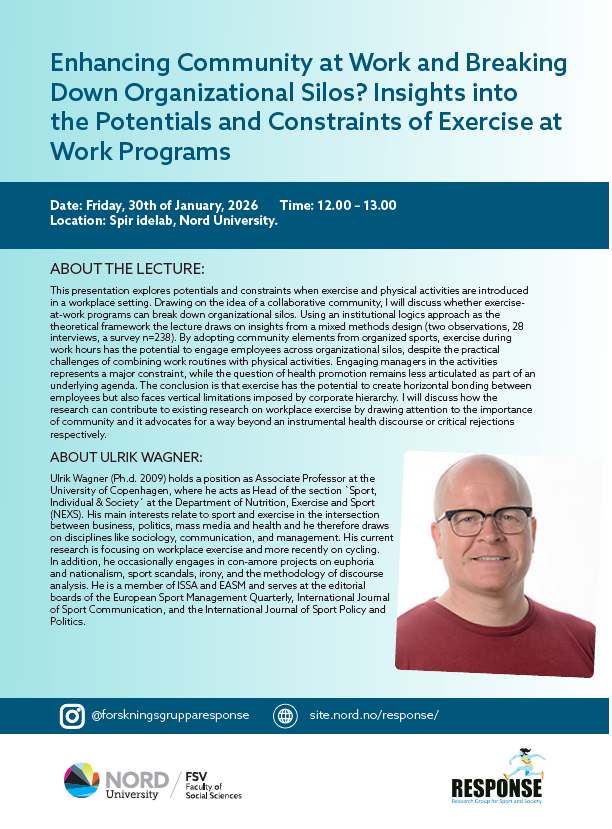Date: Friday, 30th of January, 2026
Time: 12.00 – 13.00
Location: Spir idelab, Nord University

About the lecture:
This presentation explores potentials and constraints when exercise and physical activities are introduced in a workplace setting. Drawing on the idea of a collaborative community, I will discuss whether exercise-at-work programs can break down organizational silos. Using an institutional logics approach as the theoretical framework the lecture draws on insights from a mixed methods design (two observations, 28 interviews, a survey n=238). By adopting community elements from organized sports, exercise during work hours has the potential to engage employees across organizational silos, despite the practical challenges of combining work routines with physical activities. Engaging managers in the activities represents a major constraint, while the question of health promotion remains less articulated as part of an underlying agenda. The conclusion is that exercise has the potential to create horizontal bonding between employees but also faces vertical limitations imposed by corporate hierarchy. I will discuss how the research can contribute to existing research on workplace exercise by drawing attention to the importance of community and it advocates for a way beyond an instrumental health discourse or critical rejections respectively.
About Ulrik Wagner:
Ulrik Wagner (Ph.d. 2009) holds a position as Associate Professor at the University of Copenhagen, where he acts as Head of the section `Sport, Individual & Society´ at the Department of Nutrition, Exercise and Sport (NEXS). His main interests relate to sport and exercise in the intersection between business, politics, mass media and health and he therefore draws on disciplines like sociology, communication, and management. His current research is focusing on workplace exercise and more recently on cycling. In addition, he occasionally engages in con-amore projects on euphoria and nationalism, sport scandals, irony, and the methodology of discourse analysis. He is a member of ISSA and EASM and serves at the editorial boards of the European Sport Management Quarterly, International Journal of Sport Communication, and the International Journal of Sport Policy and Politics.
